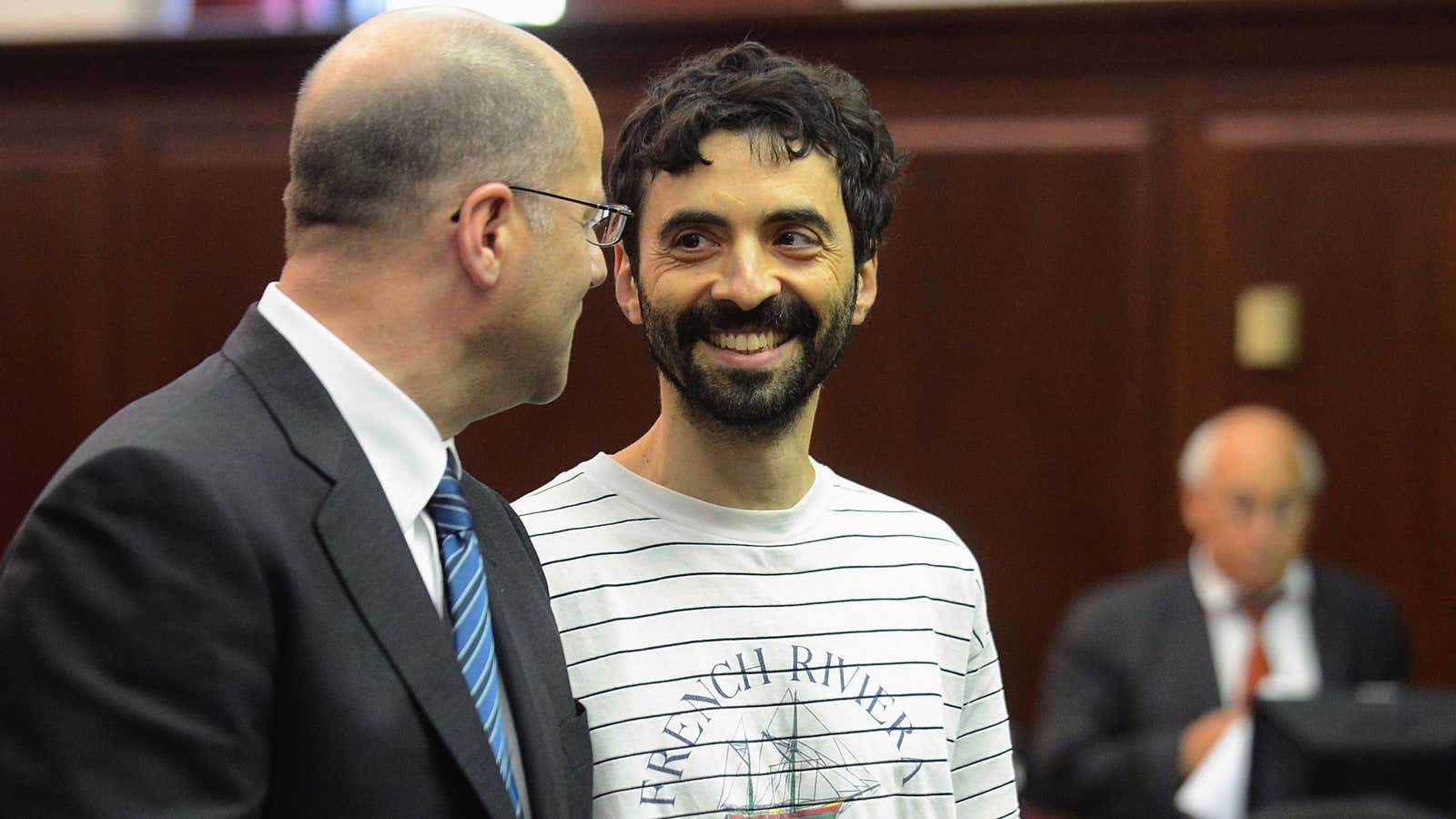A New York judge on Monday threw out charges accusing a former computer programmer of stealing code from Goldman Sachs, bringing a six-year battle toward a close and highlighting how America’s legal system has failed to keep up with the rapid changes of the digital age.
In the end, the protracted trial of Sergey Aleynikov, who wrote computer code for Goldman’s high-frequency trading operations, hung on a rarely-used criminal statute enacted nearly 50 years ago.
Aleynikov, who was featured in Michael Lewis’ book Flash Boys, began writing code for Goldman’s high-frequency trading operations in 2007. He was preparing to take another job at trading firm Teza Technologies in 2009 when he copied 32 megabytes of computer source code from the Goldman system onto a personal server. He also downloaded a portion of the code to a server at his new firm.
When Goldman caught wind of the lifted code, Aleynikov was arrested. Aleynikov has long said that he had easy access to a treasure trove of Goldman’s computer code but only took a select batch of files he had worked on to go back and look at them later, “much like a person in college would go back and read a paper,” according to court filings.
Aleynikov was initially sentenced in 2009 in a federal district court to more than eight years in prison for violating the National Stolen Property Act. His convictions were reversed in 2012—after serving a year in prison—and Goldman went after him in New York State court under a 1967 statute that generally says a person can’t steal scientific research, secret formulas, or other trade secrets with the intent of making money off of the stolen information.
According to a decision by Judge Daniel Conviser on July 6, there was not enough evidence to prove unlawful use of secret scientific material, referencing the 1967 criminal statute. State prosecutors could still appeal the decision, but the move was viewed as a big win for Aleynikov and a rare loss for the deep-pocketed and politically connected bank.
The 72-page ruling often poked at the law’s inadequacies to deal with the rapidly-changing technology at the heart of today’s global businesses, wading into semantics and consulting Webster’s dictionary definitions of common words like “tangible” and “appropriate.”
“The drafters of the statute certainly could not have imagined that in 2009, significant lines of computer code could be transmitted in an instant across thousands of miles,” Conviser said in his decision.
Nevertheless, Conviser said that just because a law is outdated, doesn’t mean he isn’t required to follow it.
According to the judge:
The issues in this case have never been easy. We update our criminal laws in this country, however, through the legislative process. Defendants cannot be convicted of crimes because we believe as a matter of policy that their conduct warrants prosecution.
We cannot ignore key terms like “tangible” and “appropriate” because they make it impossible to convict someone we believe engaged in wrongdoing. The demands of the digital age will doubtless require further refinement of our criminal laws. But it is the job of the courts to apply the laws that exist.
